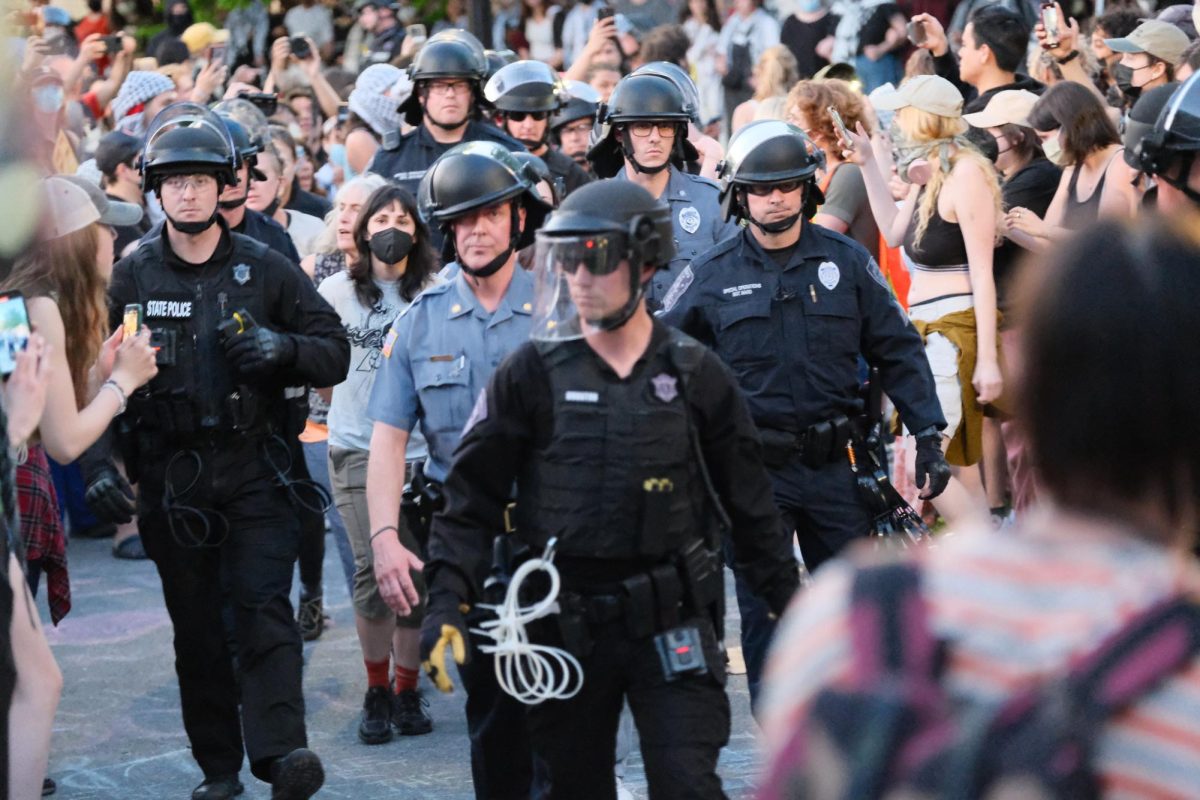
Founded by an anarchist philosophy professor and centered around the study and critique of society, the Social Thought and Political Economy program at the University of Massachusetts is well acquainted with radical social change.
The transitions currently faced by the program, however, are of a more incremental nature. STPEC is preparing to introduce a new course requirement, celebrate its 40th anniversary as a UMass program and hire a new director in the wake of the retirement of German professor and current STPEC head Sara Lennox.
STPEC is an undergraduate program of approximately 150 students, with classes taught by faculty from across different departments and the Five College system. Founded in 1972 by Robert Paul Wolff, a professor of philosophy and, later, Afro-American studies, the program’s focus was largely directed by its students, according to Tyler Rocco-Chaffee, STPEC’s interim chief academic advisor. Lennox took over the reins as director in 1981, and since then the program has gradually developed a more structured curriculum.
The program’s new requirement, STPEC 101, is a further extension of that structure. The class was approved as a regular course in December 2011 and was made an introductory requirement for incoming majors at the March 15 meeting of the Faculty Senate, according to Senate documents.
“[STPEC 101] was developed in response to students requesting more of a background, or support, for when they enter the upper-level requirements – our upper-level seminars,” said Rocco-Chaffee. “[The course’s goal is] to give them a stronger background in theory, to help introduce them to certain concepts and class styles – for example, our senior seminars are more graduate style,” with weekly meetings and an emphasis on outside reading and discussion.
Rocco-Chaffee said that the idea for the new requirement, which will provide an overview of the race, class and gender theories that students encounter in upper-level seminars, was based on both formal and informal student feedback.
“We try really hard to poll students and find out how we can make the program better, what they want… we actually do mid-semester and end of the semester evaluations,” he said. “The ideas for intro to STPEC sort of came out of that process.”
Lennox’s retirement from her roles as the program’s director and a professor in the German department will be recognized during events commemorating STPEC’s anniversary on April 13 and April 14.
Robert Feldman, dean of the College of Social and Behavioral Sciences – of which STPEC is a member – praised Lennox for her work developing the major.
“She has done an absolutely superb job as head of STPEC and really built the program into what it is today,” he said.
The search for a new director has not been completed, but Feldman said that it is in progress.
“We’re moving towards it. The search has been complicated because some of the candidates are involved in other searches, and so it’s just taken far longer than we thought it would,” he said. “I think in the next few we’re going to have identified the new director.”
Feldman said he could not discuss specific details of the hiring search due to confidentiality requirements.
For Rocco-Chaffee, STPEC’s emphasis on seminars gives its students a graduate-style experience generally not found in other departments.
“Undergraduates don’t necessarily get that until they get to our classes,” he said.
Another element of STPEC’s hand-on approach is its internship requirement. Students must complete an internship to, as Rocco-Chaffee put it, “put the theories and the ideas that students are learning in class in action.” Participants in the program have participated in a wide variety of internship programs, including stints with political organizing groups in Washington and workers’ cooperatives in South America.
Dan Glaun can be reached at [email protected].












